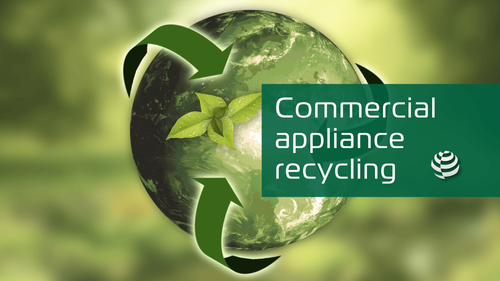22 Jul 2024
What are the benefits of recycling commercial appliances?

Recycling is the process of collecting and processing materials, which would otherwise be waste, and converting them into new products. The benefits of recycling are multiple for the community and the environment. It can help reduce the amount of solid waste that goes to landfills, which are becoming increasingly costly, and reduce air, water, and land pollution resulting from waste disposal.
The stages of recycling
Recycling involves three stages which form a repeated and interrelated process, represented by the well-known recycling symbol.
The main steps are the collection of the waste, its processing, and transmuting it into materials that can be reused and are environmentally friendly. That is how, the recycling process is completed, which is the key action in modern waste management for the benefit of energy, the environment, and entrepreneurship.
The main benefits of recycling professional appliances are:
Reducing the amount of waste sent to landfills and incinerators.
Conserving natural resources such as timber, water, and minerals.
Increase economic security by leveraging a domestic source of materials.
Reduction of pollution and carbon emissions by reducing the need to collect new raw materials.
Energy saving.
Recyclable materials include many types of glass, paper, cardboard, metal, plastic, tires, textiles, batteries, and electronic devices and come from various sources such as household waste, public services, agricultural waste, and industry.
Like all commercial appliances used in various industries, commercial refrigerators and freezers can be recycled and contribute to the benefits of recycling electrical appliances.
)
)
)
)
)
)
)
)
)
)
)
)
)
)
)
)
)
)
)
)
)